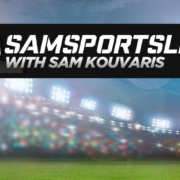Chasing Greatness: The Right Way
It’s easy to admire greatness. I’ve always been fascinated by sports dynasties. Some might find it boring to see the same team win year after year. On the other hand, I marvel and admire and what it took that group and their leaders to get there and stay there for an extended period of time. With that as a premise, I admit I admire doing it what I consider the right way part of the equation. Not to be a namedropper, but a discussion with the actor Russell Crowe solidified this thought in my mind that there was a right way to play, win and conduct yourself in sports. Crowe was the owner of the South Sydney Rabittohs when he brought them to Jacksonville to face Leeds in a “friendly” rugby match. After his press conference, I had a chance to chat with him about why he owned this particular club.
“They play the right way,” he said. “They live in the community. They support the neighborhood. Their play is a reflection of where they come from: Smart, tough, fair-minded. They just play the game the right way.”
I was struck by those comments as they applied to my own vision of sports, shaped by growing up in Baltimore. The Orioles played baseball the right way. They hustled. They moved the runner over. They hit the cutoff man. In fact, it was well known in baseball circles as The Oriole Way. And there’s a book with that title.
Over the years I’ve tried to study winning and leadership and dissect it, looking for similarities, or differences. In professional football team health is the first thread that runs though winners. With only a few outliers like Earl Morrall or Jeff Hostetler, teams that win consistently have healthy, productive starting quarterbacks with the rest of the team staying healthy around them. They also have a thread that runs through the team that is hard to quantify. The players come in all shapes and sizes, from different backgrounds but they all have this similar part of their personality that binds them together as a team. They want to win, they’re selfless and willing to reflect on themselves to try and get better. Although they haven’t won anything yet, the Jaguars show all signs of this kind of team. From rookie free agents to high draft picks who were stars in college, they all buy into the humility, self-inspection and work to get better tenants that Head Coach Gus Bradley preaches. The Packers of the 60’s, the 49ers and Redskins of the 80’s and 90’s and most recently the Patriots were that kind of teams.
And look at their leaders: Vince Lombardi, Bill Walsh, Joe Gibbs and Bill Belichick. All took teams with a few stars and mostly solid players and built them into sustainable winners. Tom Coughlin has come close with the Giants. Tony Dungy the same with the Colts and now John Fox in Denver is near, but doesn’t look like he’ll get there.
There’s no denying star players impact on a team. The 1966 Orioles were very similar to the 1965 Orioles except they added Frank Robinson and won the World Series, beating the Dodgers 4 games to none. Peyton Manning has made every team he’s been on an instant contender. Sam Huff once said of the 1959 rematch of the Colts and the Giants for the NFL Championship after the “Greatest Game Ever Played,” (The Colts won again) “They had Unitas, we didn’t.”
LeBron James going to Miami made them an instant favorite to win the NBA Championship and they did. Not just with him, but with Wade, Bosh and several other solid players. Going to the Heat, James looked like a carpetbagger, chasing a championship but not doing it the right way. His move to Cleveland will be a very different scenario. Obviously teams have the option to try and get whatever top players they can, and the Cavaliers know they need some talent around LeBron that’s not there yet if they want to contend. Building a team, working his way back to the Finals and a potential NBA Championship will only bolster James’ legacy. Had he gone anywhere else to a “stacked” team, he’d been forever considered just a hired gun. Now, going home, James has a chance to quiet the naysayers and try to win a title for Cleveland.
Sounds weird doesn’t it? Title and Cleveland in the same sentence?


